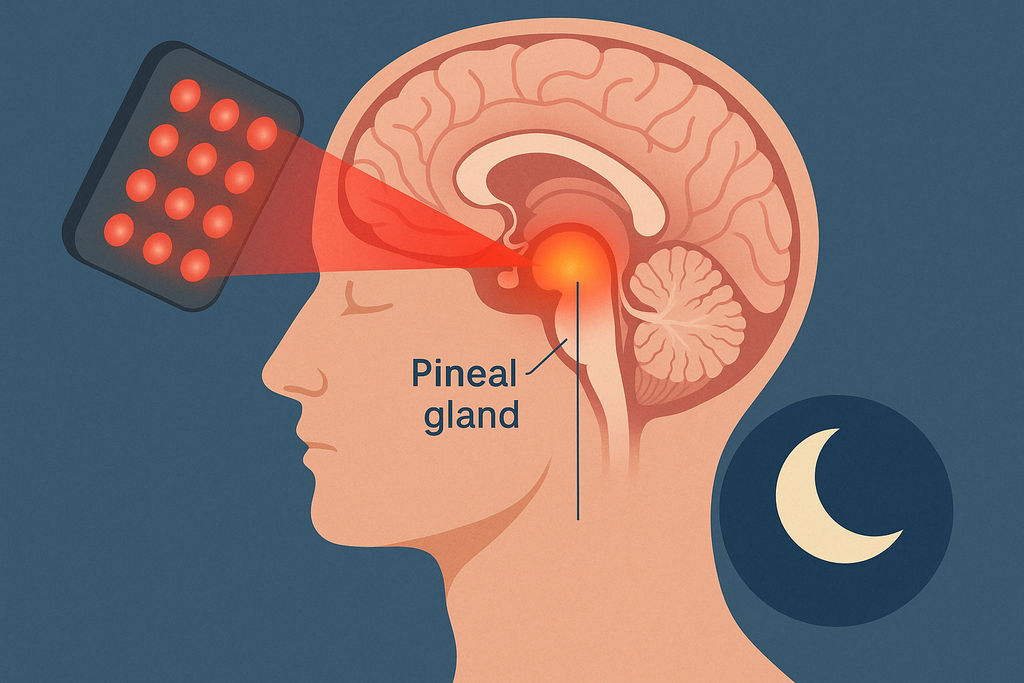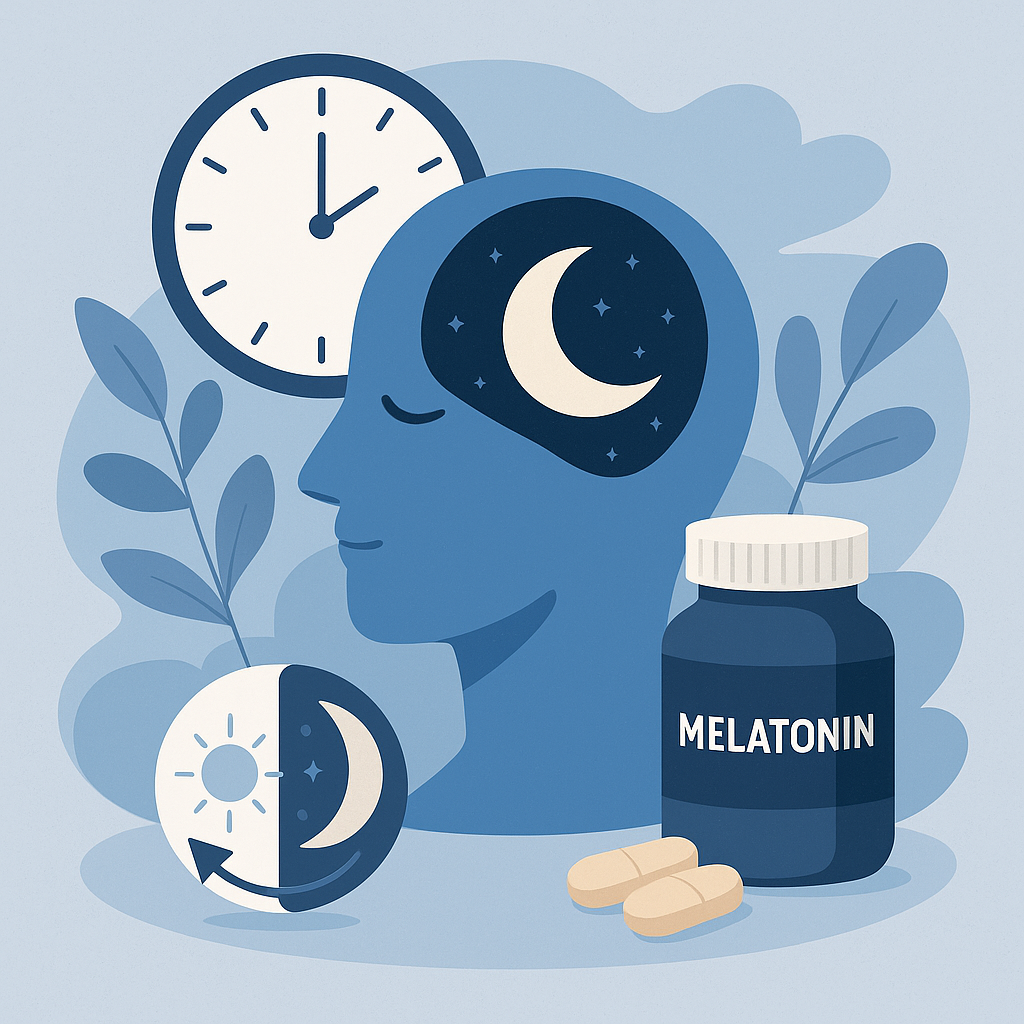News — melatonin production
Photobiomodulation: Boost Pineal Gland Function & Natural Melatonin Production
biohacking sleep brain health circadian rhythm holistic circadian support L-tryptophan supplement light and sleep light therapy for sleep melatonin production natural melatonin booster natural sleep solutions near-infrared light non-invasive sleep therapy PBM photobiomodulation pineal calcification pineal gland red light therapy sleep and mood sleep support third eye gland
As the world becomes increasingly aware of how light affects biology, photobiomodulation (PBM) has emerged as a breakthrough in non-invasive health optimization. PBM uses specific wavelengths of red and near-infrared (NIR) light to stimulate cellular function, reduce inflammation, and support tissue repair. But one of the most intriguing frontiers in PBM research is its potential to support the pineal gland—a small, mysterious organ deeply involved in our circadian rhythm and melatonin production.
Known as the body's “third eye,” the pineal gland governs our sleep-wake cycles, hormone regulation, and even our mood. When this gland becomes calcified or functionally impaired, it can disrupt melatonin output and lead to poor sleep, fatigue, and long-term health issues. Fortunately, research now suggests that targeted light therapy may enhance pineal gland function and promote natural melatonin production—offering a non-pharmaceutical path to better sleep and circadian balance.
The Role of Melatonin in the Circadian Rhythm and Sleep-Wake Cycle
B6 and melatonin biological clock blue light sleep disruption brain and melatonin circadian rhythm insomnia jet lag jet lag remedy light and sleep LongLifeNutri melatonin melatonin benefits melatonin dosage melatonin for kids melatonin production natural sleep aids shift work sleep sleep hygiene sleep supplement sleep-wake cycle
Ever wonder why you start to feel sleepy around the same time each night? Or why traveling across time zones throws off your entire schedule? The answer lies in your body’s internal clock — the circadian rhythm — and a powerful hormone called melatonin. Often referred to as the “sleep hormone,” melatonin plays a crucial role in regulating when you feel alert and when it’s time to wind down.
Produced by the pineal gland in response to darkness, melatonin signals the body that it’s time to prepare for rest. But melatonin isn’t just about sleep — it’s an essential regulator of your entire circadian system. In this article, we’ll explore how melatonin influences your sleep-wake cycle, how modern life disrupts this rhythm, and natural ways to optimize your melatonin production for better rest and overall well-being.
Hiking for Improved Sleep: The Ideal Nighttime Routine
circadian rhythm deep sleep digital detox evening walks healthy sleep routine hiking and mental health hiking benefits hiking for stress melatonin production natural melatonin natural sleep aid nature relaxation nature therapy nighttime routine outdoor exercise reduce insomnia restorative sleep sleep and nature sleep improvement sleep quality
In today’s fast-paced, digitally driven world, quality sleep is often one of the first things sacrificed. For many, poor sleep quality leads to increased stress, reduced productivity, and even long-term health issues. Interestingly, a solution for restful sleep might be closer than we think—in the great outdoors. Hiking is not only excellent for physical fitness but has been shown to improve sleep quality, reduce stress, and help reset our natural circadian rhythms. By incorporating hiking into your evening or nighttime routine, you might find the key to a more restful, rejuvenating sleep.
This article dives into how hiking can naturally promote better sleep, the science behind nature’s impact on the body, and the best ways to make hiking a part of your routine for optimal sleep benefits. Let’s explore the connection between fresh air, physical exertion, and quality rest, and how the simple act of a pre-bedtime hike can transform your nights and improve your days.



